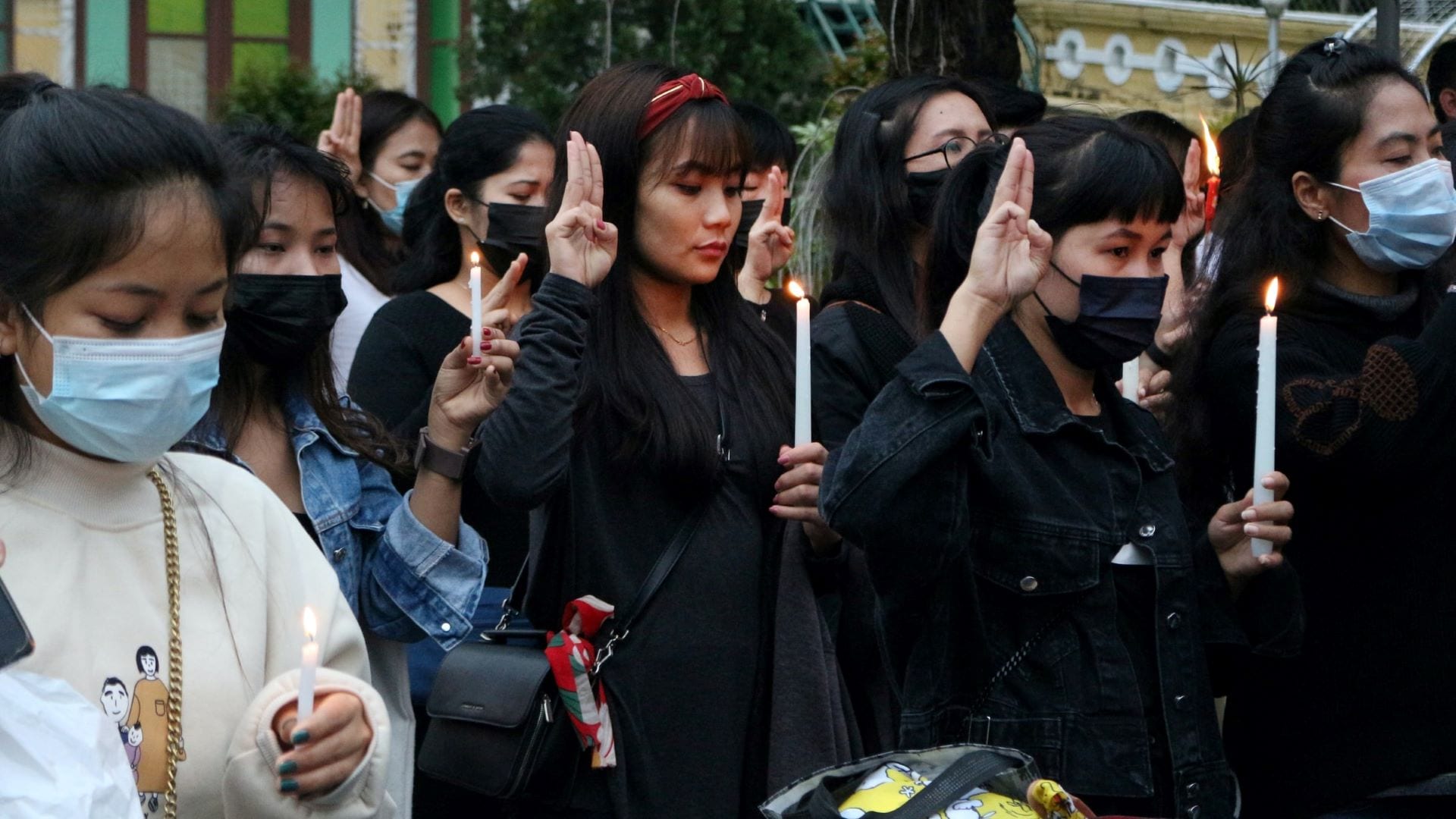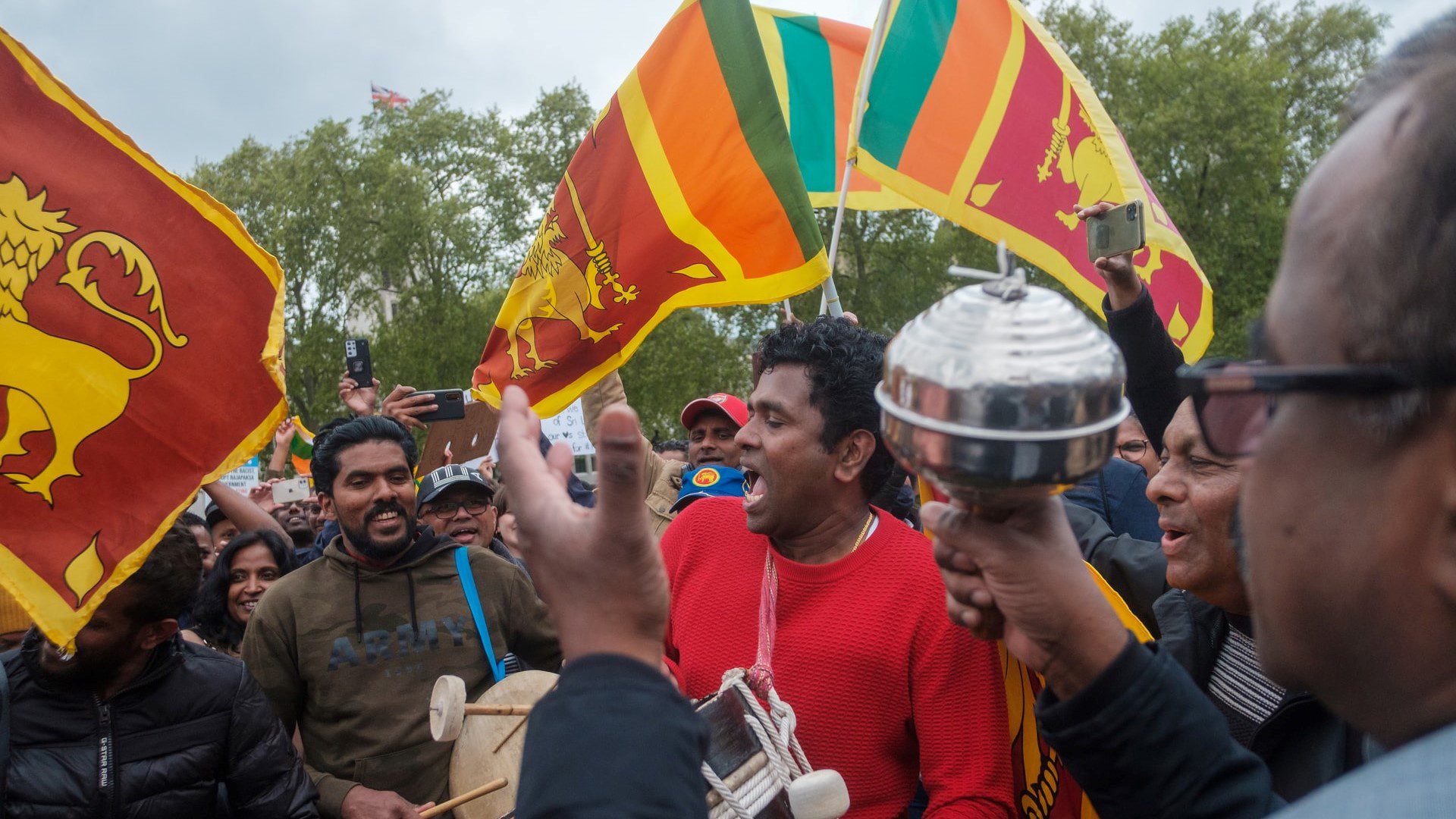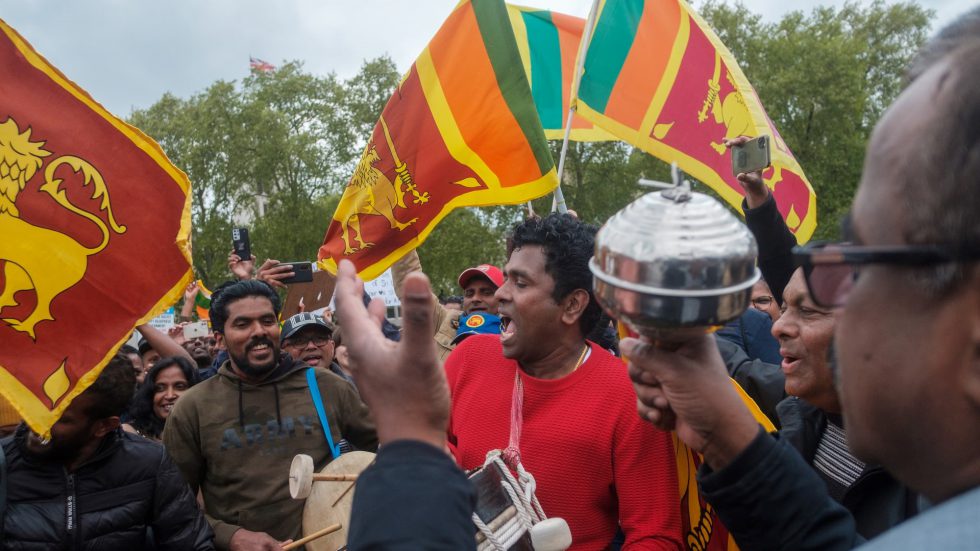At present, the situation in Myanmar is dire. In the aftermath of the military coup in early February, pro-democracy protesters continue to be brutally repressed by Burmese military forces, known as the Tatmadaw. Around the world, observers are disturbed by ongoing reports of human rights abuses and violence against civilians.
Sadly, this is not the first time that this Southeast Asian country of some 53 million inhabitants has been subjected to military dictatorship. In order to understand the current state of affairs, it is useful to take into account Myanmar’s troubled past.
Myanmar: a country with a troubled past
Myanmar, also known as Burma, gained its independence from the British Empire in 1948. From then, the country held regular multi-party elections until a military coup in 1962 saw General Ne Win installed as a socialist dictator for the following 26 years.
The ideology enforced during this period of Burmese history was known as the “Burmese Way to Socialism,” which consisted of a totalitarian one-party state overseeing the nationalization of all major industries, placing severe restrictions on freedom of expression, and enacting a strict isolationist foreign policy.
The era of the Burmese Way to Socialism finally ended in 1988, when the regime made some concessions after a wave of pro-democracy protests, culminating in the 8888 Uprising. At this point, large sections of Myanmar’s population had grown increasingly frustrated with declining living standards amid economic stagnation and government mismanagement.
However, despite the resignation of General Ne Win and a promise of elections, the protests were violently suppressed following a coup in September 1988. Furthermore, the results of a multi-party election in 1990, won by the National League for Democracy, were rejected by the military.
Even though the Burmese Way to Socialism was abandoned, it would not be until the 2010s that Myanmar would transition from a military dictatorship to a partial democracy.
Flawed democracy under Aung San Suu Kyi
Since the 8888 Uprising, one of its central figures, Aung San Suu Kyi, spent much of the following decades under house arrest. In the process, she came to be viewed internationally as a symbol of resistance to Myanmar’s military junta.
After the historic multi-party elections in 2015, Aung San Suu Kyi’s National League for Democracy won a supermajority. She became the inaugural State Counsellor of Myanmar, making her the de facto head of government.
However, during her time as State Counsellor, which ended abruptly with the recent military coup, the 1991 Nobel Peace Prize laureate drew significant criticism from the international community.
This was primarily due the Burmese leader’s repeated refusal to acknowledge the widespread atrocities committed by the Tatmadaw against Rohingya Muslims, an ethnic minority mostly concentrated in Rakhine state, close to the border with Bangladesh. To the rest of the world, her failure to stand up for a persecuted minority made Aung San Suu Kyi complicit in genocide, with many calling for her Nobel Peace Prize to be revoked.
The February 2021 coup was not entirely unexpected
In November 2020, Aung San Suu Kyi and the National League for Democracy won the latest general election by a landslide.
For some time prior to the election, there was a level of expectation that the National League for Democracy would pursue constitutional reform, very much against the wishes of the Tatmadaw. Myanmar’s current constitution, ratified in 2008 as part of the country’s roadmap to democracy, continued to afford the armed forces a significant level of power and political influence.
Amid difficult economic conditions resulting from the fallout of the COVID-19 pandemic and concerned about the prospect of their influence being weakened through constitutional reform, the Tatmadaw’s frustrations boiled over. On February 1, Myanmar’s military, led by Senior General Min Aung Hlaing, seized power and arrested Aung San Suu Kyi.
The Tatmadaw claimed that the results of the recent election were illegitimate. However, no evidence was provided to the Burmese people.
The brutal treatment of pro-democracy protesters
Following the arrest of Aung San Suu Kyi and other senior figures in the National League for Democracy, the Tatmadaw announced that they will assume complete control for a 12-month period as per emergency powers afforded by the constitution.
A wave of peaceful, pro-democracy protests subsequently erupted. Shortly after the coup, workers across a variety of sectors, including healthcare workers and teachers, began a labor strike. On February 6, over 20,000 participated in a street demonstration in Yangon, Myanmar’s largest city and former capital.
The Tatmadaw have imposed martial law in parts of the country, and declared on February 14 that many of Burmese citizens’ constitutional rights were suspended for the duration of the emergency.
Since then, the scale of the protests has continued to increase, but brutal reprisals against peaceful demonstrators have likewise become widespread. Thus far, at least 54 pro-democracy protesters are confirmed to have been killed, including 38 in a single day. Furthermore, many observers fear that the death toll may actually be significantly higher.
Countless have been wounded, with children reported to be among the casualties, as police and military forces have fired rubber bullets, tear gas, and live rounds at crowds.
Many of the victims of this brutal repression have been teenagers and young adults. Among those protesters confirmed to have died were Ma “Angel” Kyal Sin, 19, Zin Ko Ko Zaw, 22, and Nay Myo Aung, 16, all of whom were shot by agents of the new regime. Representatives of Amnesty International have highlighted mounting evidence of shoot to kill tactics being approved by the military junta in their bid to suppress the protests.
A human rights emergency
As of March 4, over 1,700 people, including dozens of journalists, have been arrested in connection to the protests, according to U.N. Human Rights Commissioner Michelle Bachelet. Among the pro-democracy protesters detained is one of Students For Liberty’s Local Coordinators in Myanmar, Aung Kyaw Phyo, who was captured by military forces during a peaceful demonstration.
Ever since the Tatmadaw overthrew Myanmar’s democratically elected government, the brutal treatment of peaceful protesters has constituted a human rights emergency. Such a level of repression, with a complete disregard for human life, civil liberties, or due process, has resulted in widespread international condemnation.
In response to the violence, the United States imposed export sanctions against Myanmar. However, it remains to be seen whether these sanctions will do anything to help improve the situation and not inflict further harm on the people of Myanmar.
The courage shown by those involved in the demonstrations certainly warrants recognition, but, unfortunately, there seems to be no end in sight to either the atrocities committed against pro-democracy protesters or indeed Myanmar’s military dictatorship.
By clicking on the button below, you can read Students For Liberty’s statement demanding the immediate release of our Local Coordinator, Aung Kyaw Phyo, along with all other peaceful protesters currently detained.
This piece solely expresses the opinion of the author and not necessarily the organization as a whole. Students For Liberty is committed to facilitating a broad dialogue for liberty, representing a variety of opinions.









